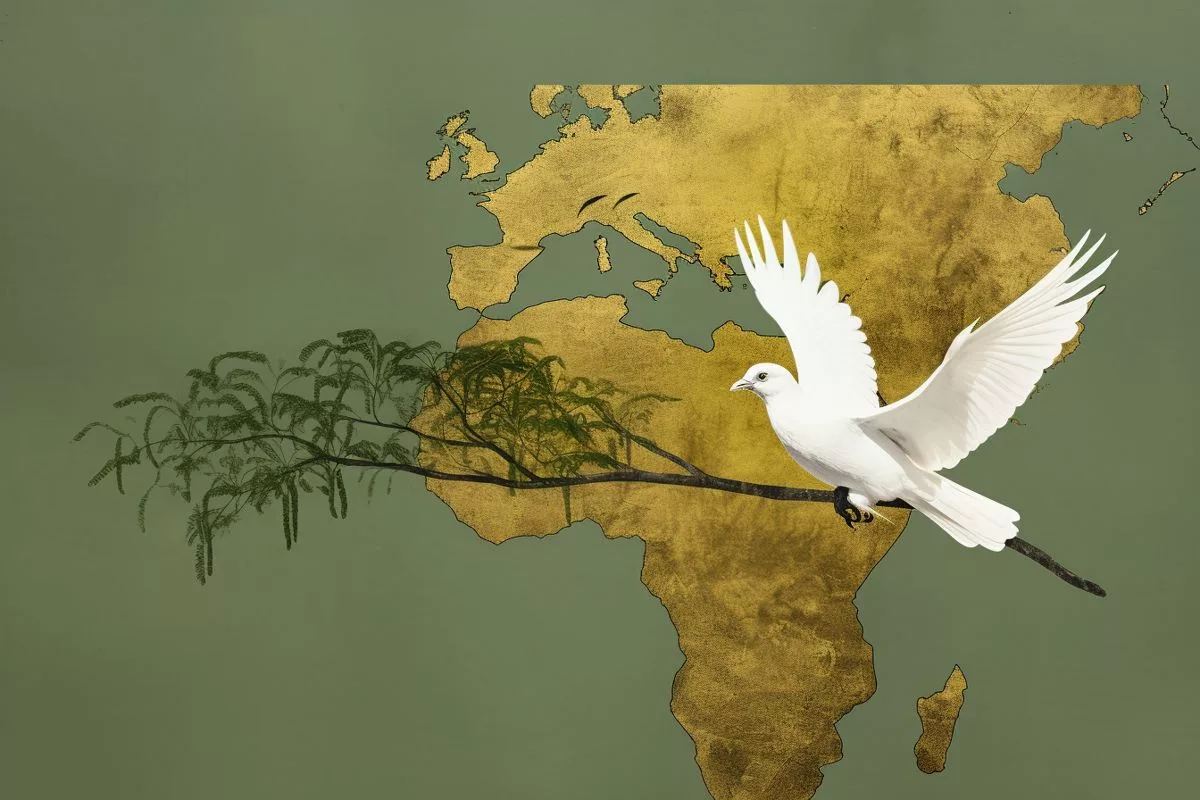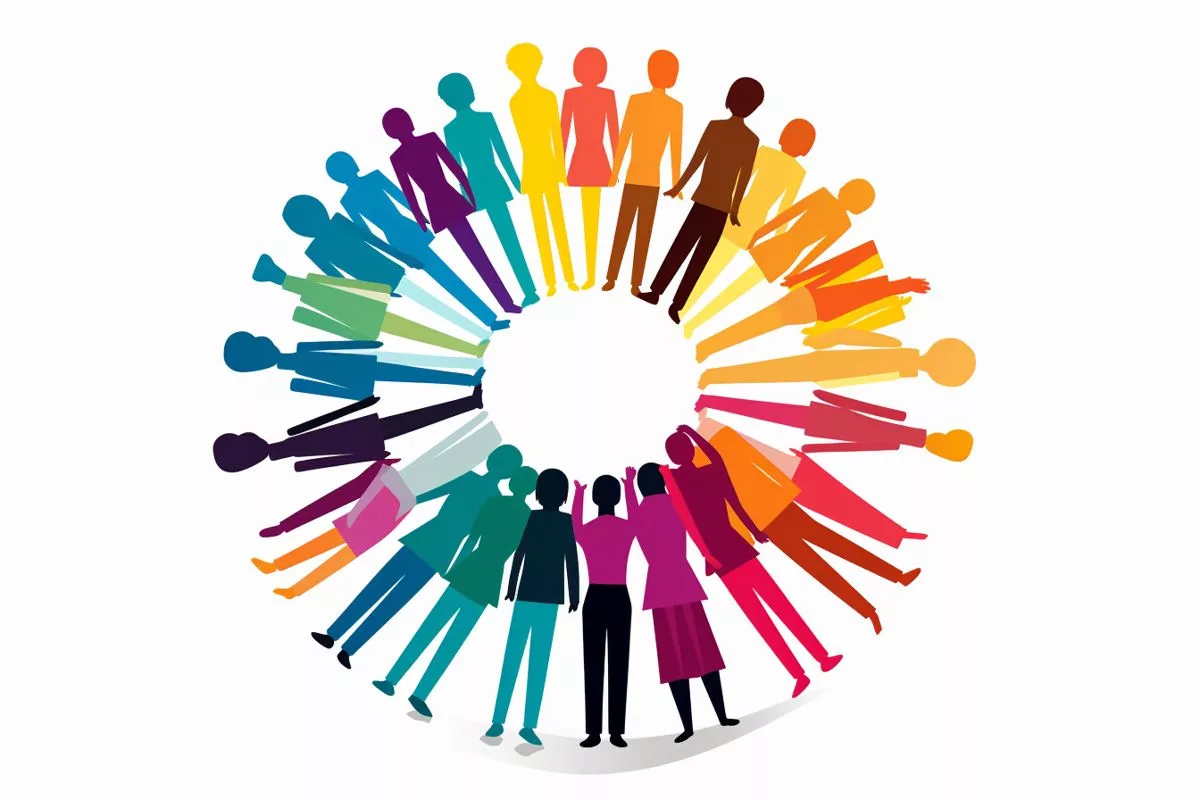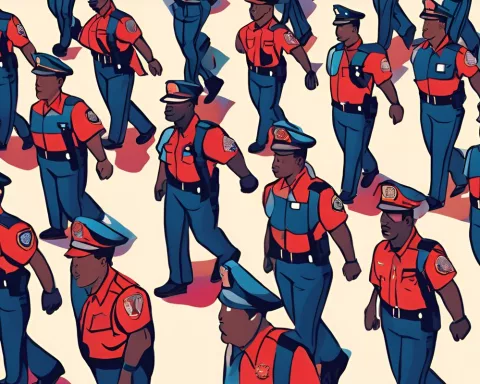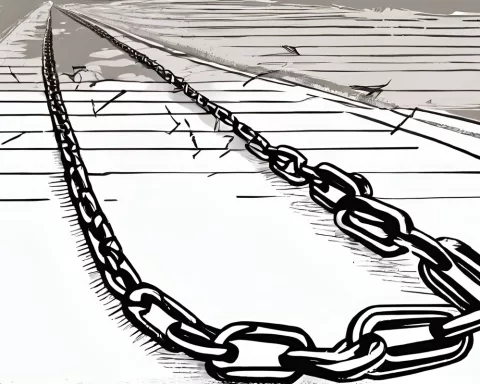The success of the Pretoria Agreement highlights the power of cooperation and unity in addressing regional conflicts and nurturing an environment of growth and prosperity, as it marks its first anniversary, demonstrating the efficacy of African-led solutions to bring peace and stability to northern Ethiopia and promote regional unity. The African Union has been instrumental in supporting the agreement and monitoring its progress, while South Africa has acknowledged the advancements made in executing the agreement. As Ethiopia continues to pursue peace and development, it serves as a symbol of hope for other regions embroiled in conflicts.
What is the Pretoria Agreement and why is it important for Ethiopia?
The Pretoria Agreement is a Cessation of Hostilities Agreement signed between the Federal Democratic Republic of Ethiopia and the Tigray People’s Liberation Front (TPLF), with the support of the African Union. Its importance lies in promoting peace and stability in northern Ethiopia, ceasing hostilities, and progressively returning life to normalcy in the region. The Pretoria Agreement exemplifies the possibility of finding African solutions to African problems.
The Pretoria Agreement: A Beacon of Hope for Peace in Ethiopia
Today, we celebrate the first anniversary of the Cessation of Hostilities Agreement between the Federal Democratic Republic of Ethiopia and the Tigray People’s Liberation Front (TPLF), which was signed in Pretoria with the support of the African Union. The Pretoria Agreement has been instrumental in ceasing hostilities, promoting peace and stability in northern Ethiopia, and progressively returning life to normalcy in the region.
The African Union (AU) has shown commendable dedication through its High-Level Panel on Ethiopia, comprising former Nigerian President Olusegun Obasanjo, former Kenyan President Uhuru Kenyatta, and former South African Deputy President Dr. Phumzile Mlambo-Ngcuka. The Pretoria Peace Agreement exemplifies the possibility of finding African solutions to African problems.
Dr. Abiy Ahamed Ali, the Prime Minister of the Federal Democratic Republic of Ethiopia, has recently updated South African President Cyril Ramaphosa about the advancements made in executing the Pretoria Agreement. South Africa recognizes the progress achieved, especially in reinstating vital services and providing humanitarian aid in the Tigray Region.
The Role of South Africa and the African Union in Ethiopia’s Progress
South Africa has also acknowledged the successes in the disarmament, demobilization, and reintegration of the Tigray Armed Forces, as supervised by the African Union Monitoring, Verification, and Compliance Mechanism stationed in the region. South Africa encourages both the Ethiopian government and the TPLF leadership to persist in their endeavors to fully implement the Pretoria Agreement.
The relationship between South Africa and Ethiopia, grounded in historical ties tracing back to South Africa’s liberation struggle, is greatly treasured. These connections continue to flourish and strengthen. As the two nations heighten their friendship and expand their mutual understanding, they do so for the betterment of their citizens.
Peace, stability, and development remain the ultimate goals for Ethiopia. As both countries commemorate the anniversary of the Cessation of Hostilities Agreement, it serves as a reminder of the significance of cooperation and unity in addressing regional conflicts and nurturing an environment of growth and prosperity.
The Pretoria Agreement: A Symbol of Unity and International Cooperation
The Pretoria Agreement has become an indispensable component in the quest for peace in Ethiopia. Its success conveys a strong message to the global community, showcasing the efficacy of African-led resolutions to the challenges confronting the continent. As the world witnesses the progress accomplished in Ethiopia, the importance of international cooperation and regional unity in conflict resolution and peacemaking must not be forgotten.
As countries continue collaborating to tackle global issues, the Pretoria Agreement stands as evidence of the power of cooperation, diplomacy, and unity when confronted with adversity. It is through the joint efforts of governments, international organizations, and the determination of the people that peace and stability can be realized.
The achievements in Ethiopia not only represent a symbol of hope for other regions embroiled in conflicts but also exemplify how robust partnerships and regional cooperation can lay the foundation for enduring peace. As we observe this milestone, we must remain dedicated to pursuing peace, stability, and development in Ethiopia and throughout the continent.
Reflection on the Pretoria Agreement’s First Anniversary and the Way Forward
The first anniversary of the Pretoria Agreement provides an opportunity to contemplate the significance of diplomacy, regional cooperation, and international backing in resolving conflicts and establishing lasting peace. As Ethiopia forges ahead in its journey towards stability and prosperity, the role of the international community in nurturing an environment conducive to peace and development remains essential.
In summary, the anniversary of the Cessation of Hostilities Agreement underscores the importance of unity, cooperation, and diplomacy in addressing regional challenges. As the world grapples with various conflicts and crises, the Pretoria Agreement serves as a reminder of the power of collective action and determination in the pursuit of peace and development. May Ethiopia continue progressing towards peace, stability, and prosperity, and may this accomplishment inspire other nations to strive for a peaceful and unified future.
What is the Pretoria Agreement and why is it important for Ethiopia?
The Pretoria Agreement is a Cessation of Hostilities Agreement signed between the Federal Democratic Republic of Ethiopia and the Tigray People’s Liberation Front (TPLF), with the support of the African Union. Its importance lies in promoting peace and stability in northern Ethiopia, ceasing hostilities, and progressively returning life to normalcy in the region. The Pretoria Agreement exemplifies the possibility of finding African solutions to African problems.
Who has been instrumental in supporting the Pretoria Agreement?
The African Union has been instrumental in supporting the Pretoria Agreement and monitoring its progress. The African Union’s High-Level Panel on Ethiopia, consisting of former Nigerian President Olusegun Obasanjo, former Kenyan President Uhuru Kenyatta, and former South African Deputy President Dr. Phumzile Mlambo-Ngcuka, showed commendable dedication. South Africa has also acknowledged the successes in the disarmament, demobilization, and reintegration of the Tigray Armed Forces supervised by the African Union Monitoring, Verification, and Compliance Mechanism stationed in the region.
What role has South Africa played in the success of the Pretoria Agreement?
South Africa has acknowledged the advancements made in executing the Pretoria Agreement, especially in reinstating vital services and providing humanitarian aid in the Tigray Region. South Africa also encourages both the Ethiopian government and the TPLF leadership to persist in their endeavors to fully implement the Pretoria Agreement. The relationship between South Africa and Ethiopia, grounded in historical ties tracing back to South Africa’s liberation struggle, continues to flourish and strengthen.
What message does the Pretoria Agreement convey to the global community?
The success of the Pretoria Agreement conveys a strong message to the global community, showcasing the efficacy of African-led solutions to the challenges confronting the continent. As the world witnesses the progress accomplished in Ethiopia, the importance of international cooperation and regional unity in conflict resolution and peacemaking must not be forgotten.
What is the significance of the Pretoria Agreement’s first anniversary?
The first anniversary of the Pretoria Agreement provides an opportunity to contemplate the significance of diplomacy, regional cooperation, and international backing in resolving conflicts and establishing lasting peace. It underscores the importance of unity, cooperation, and diplomacy in addressing regional challenges and serves as a reminder of the power of collective action and determination in the pursuit of peace and development.
What are the ultimate goals for Ethiopia?
Peace, stability, and development remain the ultimate goals for Ethiopia. As both countries commemorate the anniversary of the Cessation of Hostilities Agreement, it serves as a reminder of the significance of cooperation and unity in addressing regional conflicts and nurturing an environment of growth and prosperity.
How can the achievements in Ethiopia inspire other nations?
The achievements in Ethiopia not only represent a symbol of hope for other regions embroiled in conflicts but also exemplify how robust partnerships and regional cooperation can lay the foundation for enduring peace. As we observe this milestone, we must remain dedicated to pursuing peace, stability, and development in Ethiopia and throughout the continent.
What is the way forward for Ethiopia and the international community?
As Ethiopia forges ahead in its journey towards stability and prosperity, the role of the international community in nurturing an environment conducive to peace and development remains essential. As the world grapples with various conflicts and crises, the Pretoria Agreement serves as a reminder of the power of collective action and determination in the pursuit of peace and development. May Ethiopia continue progressing towards peace, stability, and prosperity, and may this accomplishment inspire other nations to strive for a peaceful and unified future.








